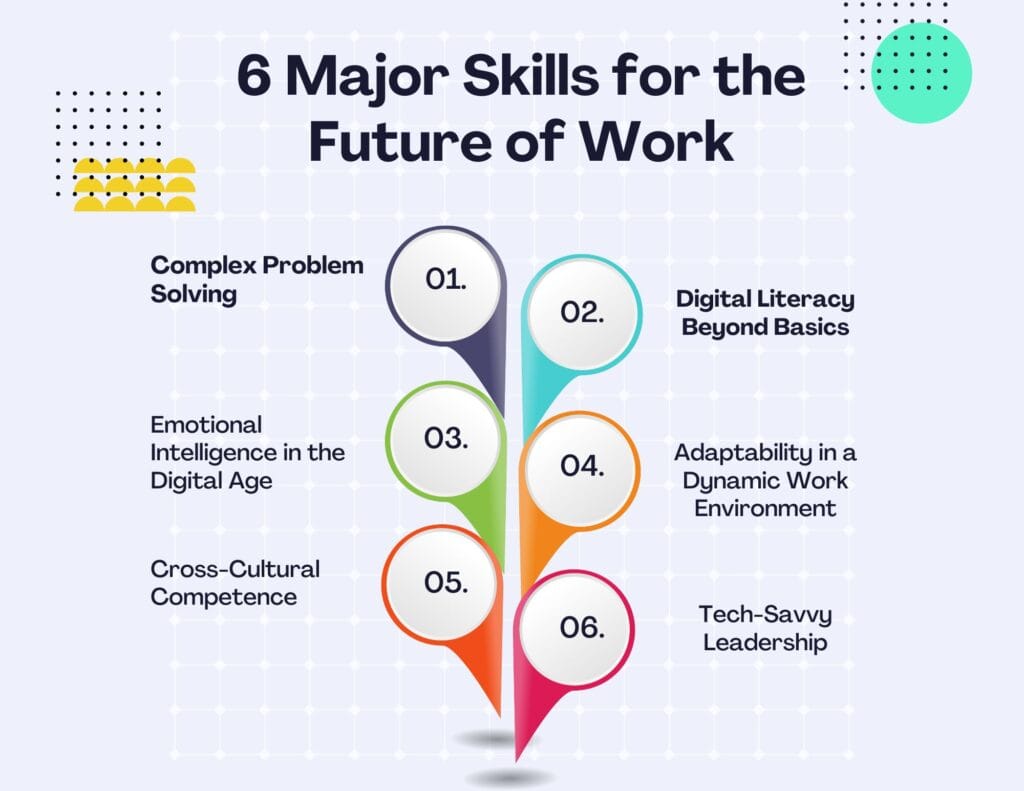
Are you looking for the best advice for graduates? I have some valuable tips to share whether you’re graduating from high or secondary school or college.
Disclosure: This post may contain affiliate links, meaning if you decide to make a purchase via my links, I may earn a commission at no additional cost to you. See my disclosure for more info.
Graduation is a significant milestone that brings both stress and excitement. You’ve worked hard to reach this point, and now you might be wondering about your next steps, or maybe you already have a plan.
There were moments when I felt confident about my post-graduation path and other times when I felt completely uncertain. Moving into the next phase of life can be daunting and exhilarating, so it’s natural to seek the best advice.
The past week has been about graduations and proms, I kept reflecting on the transition happening all around me in a lot of young people I know (including one of my daughters).
Then some parents asked me for tips for high school graduates. These ultimately inspired me to create this blog post in commemoration and recognition of those relevant and important musings and conversations occurring right now.
Thinking about the best advice I could offer graduates truly excited me. Then it hit me, there’s so much I want to share!
The wisdom I’m offering today is perfect for both high or secondary school and college graduates.
Congratulations on your achievement!
With your whole life ahead of you, I’m thrilled for you to embark on this new journey!

Here’s my best advice for graduates
Live Your Own Life
In a world where societal norms often paint a picture of the “ideal” life: complete with a family, house, and a 9-to-5 job. It’s easy to feel pressured to follow this conventional path. While this lifestyle is fulfilling for many, it’s important to recognize that it isn’t the only path to happiness and success. The beauty of life lies in its diversity, and your journey doesn’t have to mirror anyone else’s.
Define Your Own Success
You are the architect of your own future. Take the time to reflect on what you truly want out of life, beyond the expectations and pressures of society.
- What are your passions?
- What are your dreams?
- What makes you feel alive?
Success is deeply personal and should be defined by your values and desires, not by what others expect of you.
Embrace Different Possibilities
Over the years, I’ve discovered that there are countless ways to live a fulfilling and happy life. Travelling and stepping out of my comfort zone have been incredibly enlightening experiences. They have taught me that the world is full of opportunities and that there’s no single “right” way to live.
Embracing different lifestyles and perspectives can lead to personal growth and a richer, more satisfying life experience.
Be Open to Change
Living your own life means being open to change and new experiences. It means taking risks and sometimes stepping into the unknown. This openness can lead to discovering new passions, meeting diverse people, and gaining unique experiences that shape who you are. It’s about being courageous enough to follow your heart, even when it leads you off the beaten path.
Pursue Happiness on Your Terms
Ultimately, your happiness should be the guiding force in your life. Pursue what brings you joy and fulfillment, whether it’s a traditional career, creative endeavors, travelling the world, or something entirely unique. Your happiness and wellbeing are paramount, and living authentically is the best way to achieve that.
Living your own life is about taking ownership of your journey and being true to yourself. It’s about breaking free from societal expectations and forging a path that resonates with your inner self.
Embrace the possibilities, be open to new experiences, and most importantly, pursue what makes you genuinely happy. You are responsible for making your life extraordinary because it is yours.
If you want to learn more, my deep dive on the Happiness Experiment is an insightful and thought-provoking one.

Cultivate a Growth Mindset
Believe in your ability to grow and improve. A growth mindset encourages perseverance and resilience, helping you overcome obstacles and achieve your goals. How can you develop a growth mindset?
Reading my post on the 29 Ways To Develop A Growth Mindset in Young Individuals will be beneficial.
Embrace Learning as a Lifelong Journey
Graduation doesn’t mark the end of your education. When I was younger, I used to think that learning and school were the pinnacle of life’s experiences. I believed that one day, perhaps not immediately, I would come to appreciate the true value of knowledge.
Now, I can confidently say that I’ve reached that realization. I’ve discovered a genuine passion for learning and exploring new horizons. The world is brimming with knowledge waiting to be discovered, and accessing it has never been easier. Whether it’s through online courses, thought-provoking articles, enlightening books, or engaging workshops, there’s an abundance of resources at our fingertips.
I understand the temptation to take a breather after graduation. However, my best advice for graduates is to nurture a lifelong enthusiasm for learning.
The beauty of lifelong learning lies in its limitless possibilities, you can delve into any subject that piques your curiosity, pursue any skill that intrigues you, and deepen your understanding of the world around you. Recognize that failure is a necessary component of learning as well. Don’t be scared to fail and take chances. Use failures as opportunities to learn and grow.
Committing to continuous learning not only broadens your perspectives but also keeps your mind sharp and adaptable in an ever-changing world. It empowers you to evolve professionally and personally, fostering growth and fulfillment throughout your life journey.
So, as you embark on this new chapter, remember that learning is not confined to classrooms or textbooks, it’s a dynamic, enriching journey that unfolds every day. Embrace it with open arms, and let curiosity guide you toward endless opportunities for discovery and growth.
Want to know more on how to harness your knowledge for growth – Read my post on – Harnessing Knowledge for Personal and Professional Growth in a Rapidly Evolving World
Read More Books
Books offer a wealth of knowledge and insights. As a coach and a blogger, I highly recommend reading books on money management. These books cover essential topics like saving, investing, and increasing your income, providing young adults with a solid financial foundation.
Here are some of my top picks for graduation gifts, as they can set you on the right path to financial success:
- How To Win Friends and Influence People by Dale Carnegie
- The 7 Habits of Highly Effective People by Stephen R. Covey
- The Alchemist by Paulo Coelho
Additionally My curated 20 of the Best Personal Finance Books You Need To Read which include books like:
- I Will Teach You to Be Rich Second Edition: No Guilt. No Excuses. No BS. Just a 6-Week Program That Works by Ramit Sethi
- The Year of Less: How I Stopped Shopping, Gave Away My Belongings and Discovered Life Is Worth More Than Anything You Can Buy in a Store by Cait Flanders
- The Richest Man in Babylon by George S. Clason
- The Simple Path To Wealth: Your road map to financial independence and a rich, free life,
- The Millionaire Next Door by Thomas J. Stanley and William D. Danko
- Three Feet from Gold by Sharon L. Lechter and Greg S. Reid
- Gold Diggers and Deadbeat Dads: True Stories of Friends, Family and Financial Ruin
- Real Money Answers for Every Woman: How to Win the Money Game With or Without a Man by Patrice C. Washington,
- Your Money or Your Life: 9 Steps to Transforming Your Relationship with Money and Achieving Financial Independence by Vicki Robin and Joe Dominguez
- Quit Like a Millionaire: No Gimmicks, Luck, or Trust Fund Required, co-authored by Kristy Shen and Bryce Leung,

Manage Your Finances – Now Is The Time to Begin Saving For Retirement
Financial literacy is essential for achieving long-term financial stability and independence. One of the most crucial pieces of advice for graduates is to begin saving for retirement without delay. Even if your income is modest or you’re just starting in your career, starting early has profound benefits.
Here’s why:
- Harness the Power of Compound Interest: Compound interest is often described as the eighth wonder of the world by Albert Einstein for a reason. It enables your money to increase rapidly over time. By starting to save for retirement early, your investments have more time to compound and grow.
- Build Strong Financial Habits: Starting early instills discipline and good financial habits. Learn to budget, save, and invest wisely. It encourages regular savings and long-term planning, which are essential for achieving financial security later in life.
- Potential for Early Retirement: Early saving not only ensures a comfortable retirement but also opens up the possibility of retiring earlier than expected. With a solid financial foundation built over time, you can have more flexibility and freedom in your later years.
- Regret Minimization: Many older individuals regret not starting to save for retirement sooner. Time is a critical factor in investing, those who start early have a significant advantage due to the compounding effect.
- Start Small, Think Big: Even if you can only invest a small amount initially, the key is consistency. Regular contributions, no matter how modest, can accumulate into substantial savings over the long term.
- Educate Yourself: Learn about different retirement savings vehicles such as employer-sponsored plans, and other investment options. Understand the tax advantages and long-term benefits associated with each.
By prioritizing retirement savings early in your career, you’re laying the groundwork for a secure financial future. It’s never too early to start planning for retirement—your future self will thank you for taking action today.
Create A Budget
Creating a budget helps you track your spending, income, and savings needed to achieve your goals. It’s a lifelong skill that adapts to career changes, home buying, marriage, or starting a family. This is very essential advice for graduates, whether from high school or college. The books listed above will be helpful.
Start an Emergency Fund
Money saved aside for unforeseen costs is called an emergency fund. Beginning one now is crucial advice for students and graduates because it provides a safety net for unforeseen situations. It helps cover bills during job loss, repairs like a flat tire or plumbing issue, or unexpected medical costs. Having this fund reduces the need for debt and alleviates stress during unexpected challenges.
To learn more about being prepared for your finances, check out: Are you ready for 2025? Here’s How to Prepare Your Finances
Embrace Your Own Journey: Avoid Comparisons and Focus on Your Path
Do you often catch yourself comparing your progress to others? It’s a common habit that can sometimes push us to strive harder, yet it also carries the risk of stirring negative emotions like jealousy, stress, and dissatisfaction.
Here’s a valuable piece of advice: Never evaluate yourself by comparing your beginning to someone else’s middle.
Everyone has their unique path and timeline. What might appear as someone’s peak or success story could be in the middle of their journey, not the start. Your journey is just beginning, and understanding your time horizon is crucial.
When you find yourself tempted to measure your progress against someone else’s, remind yourself that everything takes time. Success is built through consistent effort and learning from setbacks. Instead of focusing on where others are in their journey, dedicate your energy to honing your skills, gaining experience, and pursuing your goals with determination.
Practice makes progress, not perfection. Embrace your journey, celebrate your milestones, big and small, and trust that each step forward is a testament to your growth and resilience. By staying committed to your own path and learning from every experience, you’ll pave the way to achieving your aspirations on your own terms.
Remember, your journey is unique, and it’s the process that shapes you into the person you’re meant to become.

Believe in Yourself
Entering this next phase, believing in yourself is crucial.
Believing in yourself is a fundamental pillar of personal growth and resilience as you embark on the next phase of your journey. This mindset empowers you to face new challenges with confidence and determination. Your self-belief is linked to the story you are telling yourself.
You should know that The story you tell yourself is the most powerful one in the world.
Here’s why believing in yourself is crucial:
- Navigating New Experiences: As you transition into new phases, whether it’s starting college, entering the workforce, or pursuing personal goals, self-belief acts as your anchor. It provides the inner strength to navigate unfamiliar territories and embrace growth opportunities.
- Overcoming Challenges: Life inevitably presents challenges. Believing in yourself equips you with the mindset to persevere through setbacks and difficulties. It instills resilience, helping you bounce back stronger from failures and setbacks.
- Reflecting on Strengths: Take time to reflect on your strengths and accomplishments. What are you good at? What achievements have you celebrated in the past? Recognizing your capabilities reinforces self-assurance and prepares you to tackle challenges head-on.
- Finding Happiness: Happiness often stems from pursuing activities that align with your passions and values. When you believe in yourself, you’re more likely to seek out opportunities that bring fulfillment and joy. Trusting your abilities allows you to pursue your dreams wholeheartedly.
- Boosting Confidence: Confidence is a key attribute in achieving success. When you believe in yourself, you exude confidence in your decisions and actions. This confidence attracts opportunities and positive outcomes, as others perceive your self-assurance and competence.
- Maintaining Positivity: In moments of self-doubt or uncertainty, self-belief serves as a beacon of positivity. It encourages a proactive approach to challenges rather than succumbing to fear or hesitation. Embrace a mindset that focuses on possibilities and growth.
Believing in yourself is a journey of self-discovery and personal empowerment. It’s about acknowledging your worth, embracing your potential, and cultivating a mindset that propels you forward. As you face the unknowns of the future, remember that your belief in yourself lays the foundation for achieving your goals and living a fulfilling life.
Value Your Relationships
Build and maintain strong relationships with family, friends, and colleagues. Cherish moments with loved ones; try and see your family and friends often. Each moment becomes even more precious and unforgettable.
The importance of spending time with those you love cannot be overstated. Good relationships provide one with a sense of community, support, and encouragement. True fulfillment and a sense of belonging will also come from within. If you would like to know more about nurturing your self-worth and belonging from within, I wrote more about this in Tips for Nurturing Self-Worth and Belonging From Within
Be More Present and Enjoy the Life You are Living Now
Being present means actively engaging in the current moment rather than letting life pass by unnoticed. It’s about fully immersing yourself in experiences, whether mundane or extraordinary and appreciating them for what they are.
This practice cultivates mindfulness, which helps you savor the richness of life and prevents regrets about time lost. By staying present, you create meaningful connections with others, deepen your experiences, and find joy in everyday moments that might otherwise slip away unnoticed.
If you would like to know more about the art of living joyfully, I wrote more about this in: A Complete Guide to Cultivating Joie de Vivre in Everyday Life
Give Back
Contribute to your community and help others. Volunteering and giving back not only benefit others but also provide a sense of fulfillment and purpose. Making a difference in someone’s life, big or small, can transform both theirs and yours.
Whether through a simple act or something more significant, extend a helping hand to those around you.
Here are some ways to make an impact:
- Greet everyone you meet with a smile and a hello.
- Have a great and loving attitude at home.
- Help out as an usher/ server in your church community.
- Work in a charity shop.
- Clear out your home and donate items to those in need.
- Offer assistance to someone facing challenges.
- Provide temporary care to a pet in need.
- Volunteer your time for a cause you care about in your community or neighborhood.
- Contribute blood to save a life.
There are innumerable ways to be kind and give back. If you seek them, you will find them.

Be Adaptable in Your Preparation for the Future
The future of work has changed and the job market is constantly evolving. Be open to change and willing to adapt to new circumstances. You can overcome obstacles and take advantage of fresh opportunities by being flexible.
There are 30 Valuable Skills of the Future covered here – Preparing for the Future: Upskilling Young People and Employees.
These 30 skills are grouped under 6 Major Skills of the Future and include:
- Complex Problem Solving
- Digital Literacy Beyond Basics
- Emotional Intelligence in the Digital Age
- Adaptability in a Dynamic Work Environment
- Cross-Cultural Competence
- Tech-Savvy Leadership
These critical skills are valued by employers. Work on developing them to complement your technical expertise.
Start Building Your Personal Brand
How you show yourself to the outside world is your personal brand. Building your brand is crucial for secondary school and college graduates as they step into the professional world and navigate their careers.
When creating your personal brand, keep the following important factors in mind:
- Self-Reflection and Identity: Start by reflecting on your values, strengths, passions, and goals. Understanding who you are and what you stand for forms the foundation of your personal brand.
- Online Presence: In today’s digital age, your online presence is a significant component of your personal brand. Ensure your social media profiles and any public content reflect your professional image. To highlight your abilities, experiences, and successes, think about creating a LinkedIn profile.
- Networking: Building a strong network is essential. Attend industry events, career fairs, and connect with professionals in your field. Networking allows you to learn from others, gain insights, and create opportunities for yourself.
- Professional Image: Your appearance, communication skills, and behavior contribute to your personal brand. Dress appropriately for different occasions, practice effective communication, and demonstrate professionalism in all interactions.
- Developing Skills: Continuously work on developing and enhancing your skills. Look for volunteer opportunities, internships, or part-time work that fit your career goals. These experiences not only build your skillset but also add credibility to your personal brand.
- Consistency and Authenticity: Ensure consistency across all aspects of your personal brand. Your actions, words, and online presence should align with your values and goals. Authenticity is key to building trust and credibility with others.
- Seek Feedback: Solicit feedback from mentors, peers, and professionals in your network. Constructive feedback helps you identify areas for improvement and refine your personal brand over time.
- Value Proposition: Clearly articulate what sets you apart from others. Identify your unique strengths, experiences, and achievements that demonstrate the value you bring to potential employers or collaborators.
- Adaptability and Growth: Be open to learning and adapting as you progress in your career. Embrace challenges as opportunities for growth and development. Your personal brand should evolve as you gain new experiences and skills.
By focusing on these aspects and investing time and effort into building your personal brand, high school, and college graduates can establish a strong foundation for their future success in the professional world.
Prioritize Your Wellbeing
Take care of your physical and mental health.
Have a balanced lifestyle, including regular exercise, a healthy diet, and sufficient rest, which will enhance your productivity and overall well-being.
Reading The Almanack of Naval Ravikant written by Eric Jorgenson, I had a lot of laugh-out-loud moments based on his quotes which I wished I had read in my 20s. I am happy to share some of them below:
Doctors won’t make you healthy,
Nutritionists won’t make you slim,
Teachers won’t make you smart,
Gurus won’t make you calm,
Mentors won’t make you rich,
Trainers won’t make you fit.
Ultimately, you have to take the responsibility to Save yourself.”
Naval Ravikant
Naval additionally states that,
Hiking is walking meditation,
Journaling is writing meditation,
Praying is gratitude meditation,
Showering is accidental meditation,
Sitting quietly is direct meditation.”
Naval Ravikant
Remember That Not All Grownups Are Competent in Their Fields.
As you transition into adulthood, it’s important to recognize that competence is not guaranteed solely by age or experience.
Naval Ravikant states that we should “Be aware that there are no ‘adults’. Everyone makes it up as they go along. You have to find your own path, picking, choosing, and discarding as you see fit.”
Here’s why understanding this concept is crucial:
- Reality Check: Growing up, there’s often an assumption that adults possess all the answers and are inherently skilled in their respective fields. However, real-world experiences quickly reveal that this isn’t always the case. Many adults continue to learn, adapt, and face challenges in their professions.
- Continuous Learning: Just like you, adults are constantly learning and evolving in their careers. They may encounter new technologies, changing industry standards, or unexpected situations that require them to adapt and acquire new skills. This ongoing learning process underscores the importance of humility and a growth mindset at any stage of life.
- Diverse Capabilities: Adults come from various backgrounds and have different levels of expertise. Some excel in their professions through years of dedicated practice, while others may struggle or face obstacles along their career paths. Understanding this diversity in competence helps you appreciate individual strengths and challenges.
- Role Models and Mentors: While some adults serve as exemplary role models and mentors, others may not embody the competence or values you aspire to. Recognizing this variability allows you to discern whom to seek guidance from and whom to learn from, based on their knowledge, integrity, and accomplishments.
- Self-Reliance and Critical Thinking: Knowing that not all adults are equally competent encourages you to develop self-reliance and critical thinking skills. Rather than blindly following advice or assuming authority based on age alone, you’re empowered to evaluate information, seek multiple perspectives, and make informed decisions.
- Embracing Uncertainty: Adulthood often involves navigating uncertainties and complexities. Accepting that competence varies among adults prepares you to confront challenges with resilience and adaptability. It fosters a mindset of continuous improvement and proactive problem-solving.
Understanding that competence varies among adults reinforces the importance of lifelong learning, critical thinking, and resilience. It encourages you to cultivate your skills, seek mentors wisely, and approach challenges with confidence and humility, knowing that competence is a journey of growth and development for everyone.

Embrace Minimalism
Embracing minimalism is key to an uncluttered mind.
I have moved homes five times in the last two decades. Each time I have found that we have drastically reduced our possessions. The truth of the saying that “less is more” hits home every time. We realized much of what we owned was unnecessary clutter.
This advice is invaluable for graduates:
- Focus on what truly enriches your life.
- Save money by avoiding unnecessary purchases.
- Clear your home and mind of clutter.
- Stay organized within your space.
- Let go of just-in-case items and experience the freedom of decluttering.
- Develop an abundance mindset.
- Develop strategies for mindful consumption.
- Find balance in your social media consumption.
You don’t need to purge everything. Instead, be intentional about what you keep to maintain balance in your life.
Reading the recommended book – The Year of Less: How I Stopped Shopping, Gave Away My Belongings and Discovered Life Is Worth More Than Anything You Can Buy in a Store by Cait Flanders will be mind-blowing for you as it did for me.
Remain Upbeat and Positive
Though life can be difficult, keeping an optimistic mindset can help a lot. As positivity has the power to change your life, it’s one of my best pieces of advice for recent graduates. Adopt a positive outlook by grinning more, laughing more, being happy with who you are, avoiding jealousy, and whining less.

What More Could I Say to a Graduating Student?
As you embark on this exciting new chapter, keep these 18 tips close to your heart. They are designed to guide you, inspire you, and help you navigate the ups and downs of life beyond graduation. Never stop learning, remain curious, and enjoy the adventure.
Take initiative in your personal life and your future career. Seek out opportunities, volunteer for projects, and don’t wait for things to happen, make them happen for you. You have power, learn to harness it. Embrace each experience, learn from every opportunity, and stay committed to personal and professional growth.
Now, it’s your turn.
Share your own experiences, insights, or any additional tips you believe every graduate should hear.
Leave a comment below, and let’s continue this conversation together.
Congratulations again, and here’s to your bright and successful future!
Thank you for being a VCC reader.

